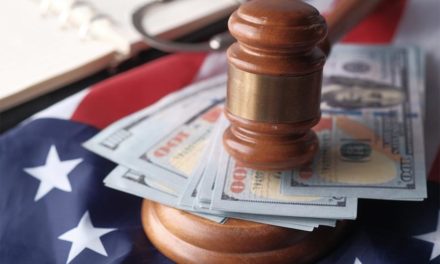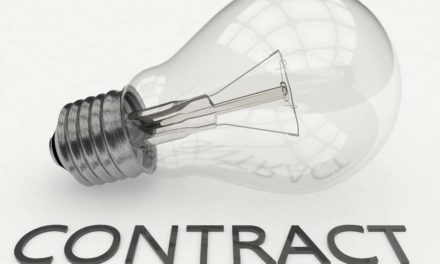These days, when forex broker becomes more popular every day, scamming grows, too. As a trader, who daily faces deal with brokers, you need to make sure of their legitimacy. Based on the regulations, reputations, trading circumstances, and the way they keep connecting with you, you can measure whether your broker is legit or not.
Why Do You Need To Verify Your Forex Broker’s Legitimacy?
The Federal Securities and Exchange Commission (SEC) filed fraud charges against a Massachusetts-based registered investment advisory firm and its owner. The agency accused Family Endowment Partners and its owner, Lee Dana Weiss, of, among other irregularities, advising clients to make certain investments without disclosing that Weiss would pocket half of the profits. The SEC also charged that clients were urged to invest $40 million in securities issued by companies in which Weiss had financial interests and from which Weiss received payments. In another case, the Financial Industry Regulatory Authority (FINRA) announced that it had permanently barred from the securities industry a former registered representative of Caldwell International Securities Corp. after charging him with numerous securities violations, including churning customer accounts. Richard Adams’ excessive trading in two customer accounts from July 2013 to June 2014, FINRA said, generated more than $57,000 in commission while costing the customers more than $37,000 in losses. These examples can you think about how important it is to make sure that your broker is legit. That’s why here you can find working steps to verify your broker’s legitimacy.

1. Verify The Broker’s Compliance With Regulations
Most likely, the most important characteristic of a reputable forex broker is that it adheres to all licensing and trading rules. Unregulated brokers can put you, your money, and themselves in risky positions, none of which you need. A perfect broker provides a great degree of security. It is simple to verify a broker’s legitimacy with a regulatory body. Around the world, a number of organizations evaluate these brokers. These authorities are:
- Financial Conduct Authority (FCA) of the UnitedKingdom
- National Futures Association (NFA) of the UnitedStates
- Australia Securities and Investment Commission (ASIC) of Australia
- Swiss Federal Banking Commission (SFBC)
- AutoritesDes Marches Financiers (AMF) of France
Sometimes, there’re brokers which are regulated by several financial regulatory authorities at the same time, such as IC Markets, which is regulated by the Australian Securities and Investments Commission (ASIC), the Financial Services Authority (FSA), the Financial Ombudsman Service (FOS) and it complies with the requirements of the Anti-Money Laundering and Counter-Terrorism Financing Act. To ensure that IC Markets operate in a transparent manner from the perspective of experienced traders, you can look through the IC markets review on Topbrokers.com, which provides valuable points about its legitimacy. However, one regulatory authority’s existence is enough to make sure that your broker is legit, and before making an investment with a broker, you must read what these regulators have to say about that broker.
2. Do Reputation Research
In the professional world of a broker, reputation is crucial. A broker’s career may be ended by a bad reputation, while good reputations bring stability and clients. But exactly what constitutes a reputation? Hard work, content clientele, and successful outcomes help you establish a solid reputation. Although it seems straightforward, there are many aspects of your reputation that are beyond your control. Don’t deposit money with a broker solely to receive a 100% deposit bonus if you have any suspicion that you might not see that money again. The gain does not outweigh the risk.
3. Examine The Broker’s Trading Circumstances
Different account options are offered by each forex broker. When evaluating broker features, keep the following factors in mind: leverage and margin; commissions and spread; minimum starting deposits; and ease of deposits and withdrawals. The broker’s trading platform is where most trading occurs. It follows that the platform you select should be reliable and simple to use. The platform a broker uses must be taken into account while choosing one. A solid trading platform will always provide a news feed, charting tools, and all the data you need to execute successful trades.
4. Check The Broker’s Customer Service
For a number of reasons, having excellent customer service is a big benefit for a forex broker. First off, since forex trading is available around-the-clock, it’s critical to have access to customer care at all times. The ability to contact customer care at any time is a significant benefit, especially for novice traders or those trying out a new broker. Real-world customer service technicians are another way to provide good customer service. When you call with a query, you want to speak to a real person as soon as possible rather than having to repeatedly dial digits in an effort to get the proper response.
5. Make Sure Your Broker Has Withdrawal And Payment Procedures
The simplicity of deposits and withdrawals is a further vital attribute, and for some forex traders, it’s the most crucial aspect. Since it is your money held in an account with the broker, you ought to have no trouble getting access to it whenever you need to. Before choosing one, spend some time learning about a forex broker’s offerings and customer testimonials. Other traders’ prior experiences can assist in painting a picture of the broker’s character.















